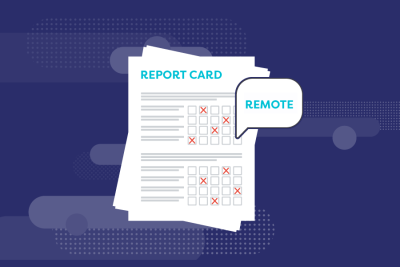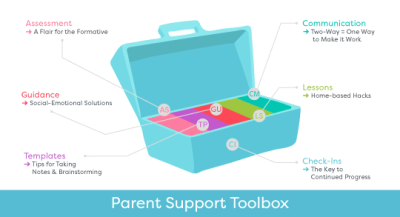By this time in the school year, teachers are starting to get burned out.
But with the spirit of the holidays and promise of 2021 around the corner, it is just what we all need to get us through.
This year is different though...”Burned out” barely scrapes the surface of what we are all feeling right now for teachers and parents alike, after nearly 9 months of quarantining and the prospect of many more to come. Piggyback that with the anxieties and pressures of trying to teach remotely [if homeschooling], manage your children’s learning and workload [if their district has gone remote or hybrid] — all while juggling working from home [if you can’t or do not feel safe to go back to the office], and taking care of family members who may be home or sick — and you’re likely to scream!
Parents: Even if you are somewhat “plugged in” to the remote learning platform that your child is using, it is still very difficult to stay on top of everything.
Most of us have a hard enough time crossing our fingers and hoping that: (1) our children are online when they should be at the start of classes [in school-appropriate clothing, to boot]; (2) they are focused during live stream classes and not “chatting” with their friends or distracted by their buzzing cell phones; (3) are navigating their Google Classrooms; and (4) are keeping up with the workload and turning in their homework assignments on time.
In a typical school year, we often do the “wait and see” and cross our fingers when our students’ grades are sent home at progress report time or report card time at the end of the term...when it is generally too late to intervene or offer other supports. But this year while monitoring your child’s home-based learning, wouldn’t it be better to make sure that your child is understanding the material and mastering concepts too? The only way to do this is to have them stay organized, have them check in with teachers [and you!] regularly, and review or assess their work beyond a “How are you doing in school?” conversation, which is often awkward and not received very well.
So, here are a few ways that you can help or support your child during this precarious time:
1. Homework Helpers
What’s the deal with homework? We all know that homework time can be an extremely frustrating process — for students and parents. Since “remote” schedules vary quite a bit from typical “in-school” schedules, it is even more important for parents to check in about workload and deadlines. In addition, since students are not “seeing” teachers in person on a regular basis, it is easy for things to slip through the cracks and without daily prompting, students may not be proactive in contacting teachers with questions or expressing the struggles they may be having. This is why staying on top of your child’s homework is of critical importance these days, and this article offers a ton of recommendations on how parents can support their children’s triumph over homework, especially during remote schooling in the age of the pandemic.
2. Excellent Evaluators
Self-evaluation is one of the critical 21st century skills that students need to compete in an oftentimes cutthroat society. Besides building self-awareness and metacognition, it is something that most adults are required to do in the workplace and/or the “real world”. If your child is participating remotely in school, some of the opportunities typically offered by teachers for formative assessments may be limited and so it is important that you set aside some time for this type of student self-reflection. This strategy could be a good catch-all for misinterpretations or comprehension breakdowns before they become larger problems. An example of this is a self-evaluation document for students here or try this self-assessment rubric.
3. Novel Note-Taking
A lot of adults don’t realize that taking notes is a skill and should really be modeled. By middle or high school, students have usually gotten it down pat, however it takes practice. Teaching [or if you’re a parent, reinforcing] note-taking skills is always a good idea. There are many note-taking templates or strategies to use, such as two-column notes, SQ3R, and interactive notebooks. Whichever method, a good test of their effectiveness is to quiz your child from his/her notes—if you can cull out a good question from the notes and have him/her provide the right answer, then the notes are doing their job.
4. 3, 2, 1...Liftoff!
We’ve all heard about learning being easy as 1-2-3, but 3-2-1 can make it less fleeting. And we’re not only talking about math or counting for preschoolers. Though it has a “fundamental” sound to it, this self-assessment method can be used for gleaning information about what your child has learned in class or during a specific lesson. The document should contain: a) three concepts that the student learned; b) two things that struck a chord or that he/she found interesting; and c) one question about a concept or idea he/she is confused about. This helps to isolate for parents [and if shared with teachers] what needs to be remediated or what the student needs retaught in order for mastery.
This is just a tip of the iceberg in terms of materials and strategies that could help parents support their children’s remote learning. You can find more at our Parent-Teacher Collaboration page here. In addition to TeacherVision’s resources, many school districts and curriculum providers offer their own parent-friendly resources too. One such organization is Common Sense Education, a national leading media and education nonprofit, that offers free resources for parents to use when their kids are conducting learning from a distance. There are a bunch of resources here that TeacherVision finds helpful and we hope you do too!














